Medical Titanium: Durable, Safe, and Biocompatible
Medical titanium: low elastic modulus, non-toxic, corrosion-resistant, biocompatible, with advanced surface treatments.
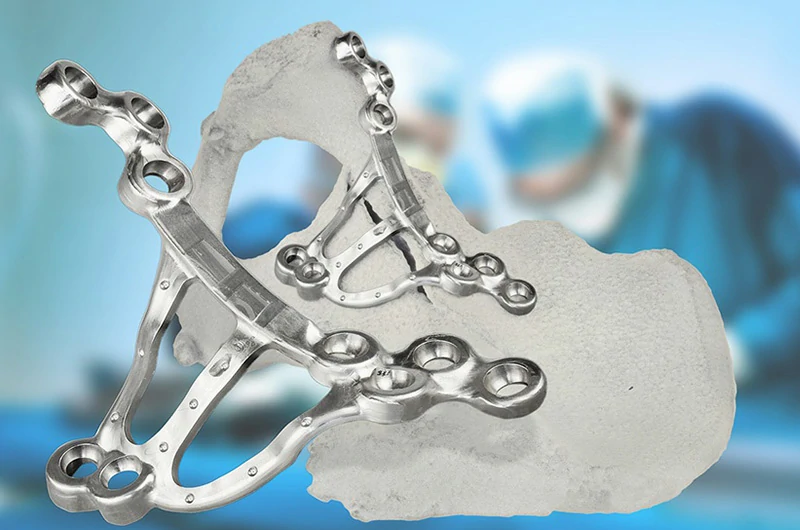
Titanium is the material of choice for dental and orthopedic implants, spinal fixation, and trauma repair due to its excellent corrosion resistance, high strength, low elastic modulus, biocompatibility, and fatigue resistance.
Medical titanium alloy grades
Biomedical titanium alloys can be classified into pure titanium, α-type, α+β-type, and β-type based on their material structure. Currently, commercially pure titanium and Ti-6Al-4V Grade 5 are the most widely used materials in clinical practice.
Most popular titanium alloy grades
-
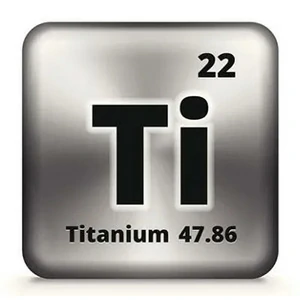 Ti Grade 1
Ti Grade 1Ti grade 1 is ideal for manufacturing medical devices that require high ductility and corrosion resistance.
ASTM B265 ASME SB265 ASTM F67 ISO 5832-2 3.7025 UNS R50250 -
 Ti Grade 2/strong>
Ti Grade 2/strong>Ti grade 2 is used for devices requiring medium strength and high corrosion resistance.
ASTM B348 ASTM B265 ASTM F67 ASME SB 265 ISO 5832-2 3.7035 UNS R50400 -
 Ti Grade 4
Ti Grade 4Ti grade 4 is used for medical devices requiring the highest strength and corrosion resistance.
ASTM F67 ASTM B863 F1341 ASTM B348 ASTM B265 ISO 5832-2 3.7065 UNS R50700 -
 Ti-6Al-4V[Ti-6-4] Grade 5
Ti-6Al-4V[Ti-6-4] Grade 5Ti-6Al-4V (grade 5) is the most commonly used material for medical implants and devices.
UNS R56400 ASTM F1108 F1472 IS0 5832-3 AMS 4965 AMS 4928 AMS 4967 AMS 4911 ASTM B265 ASTM B348 -
 Ti-6Al-4V ELI[Ti-6-4 ELI] (Grade 23)
Ti-6Al-4V ELI[Ti-6-4 ELI] (Grade 23)Ti-6Al-4V ELI has lower impurity levels, offering higher ductility, toughness, and fracture toughness.
ASTM F136 IS0 5832-3 ASTM F620 AMS 4930 AMS 4931 AMS 4996 -
 Ti-6Al-7Nb
Ti-6Al-7NbTi-6Al-7Nb, using non-toxic Nb to replace V, is especially suitable for long-term implants and medical applications in contact with the human body.
ASTM F1295 ISO 5832-11 T7401-5 DIN 3.7195 UNS R56760
Nickel-titanium alloy - shape memory alloy
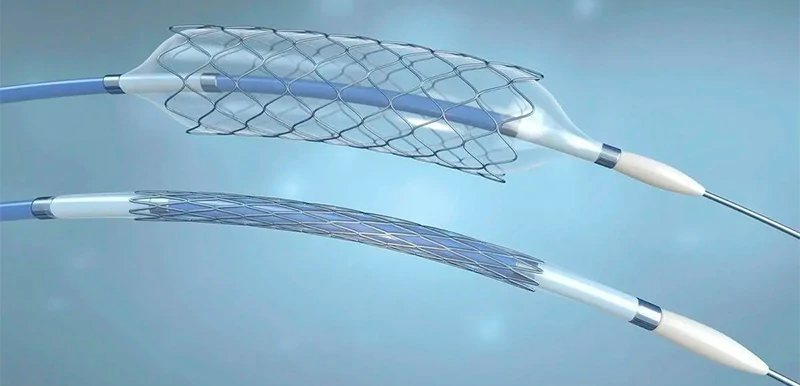
Nickel-titanium alloy, commonly known as Nitinol, is renowned for its unique shape memory effect, superelasticity, high biocompatibility, and corrosion resistance.
- Alloy: Ti-55.8Ni
- Advantages: Shape memory effect, superelasticity, high biocompatibility, excellent corrosion resistance
- Applications: Neurovascular stents, heart valves, bone screws and fixation devices, orthodontic archwires, and dental root pins
- Standards: ASTM F 2063, T7404, ASTM F2066
Other medical-grade alloys
-
Ti-0.15Pd [Ti-Pd] (Grade 7)
High corrosion-resistant α-type titanium alloy
-
Ti-0.15Pd (Grade 11)
Better corrosion resistance
-
Ti-13Nb-13Zr
Low elastic modulus, high biocompatibility, ASTM F1713
-
Ti-15Mo
Low elastic modulus, high corrosion resistance, ASTM F2066
-
Ti-12Mo-6Zr-2Fe
Low elastic modulus, high strength, ASTM F1813
-
Ti-15Mo-5Zr-3A
High corrosion-resistant α-type titanium alloy
-
Ti-3Al-2.5V[Ti-3-2.5] (Grade 9)
Known for high strength and corrosion resistance
-
Ti-5A-2.5Fe
High strength, excellent corrosion resistance, ISO 5832-10
-
Ti-6A-2Nb-1Ta
High strength, excellent biocompatibility, T7401-3
-
T-15Zr-4Nb-4Ta
High strength, T7401-4
-
Ti-3A-2.5V
High strength, ASTM F2146
-
Ti-6A-2Nb-1Ta-0.8Mo)
Low elastic modulus, ASTM F136 and ISO 5832-14
Click to view all alloys, jump to the alloy table below
Wide applications of titanium in the medical field
We offer a variety of titanium materials for medical use, including orthopedic implants, dental restorations, and cardiovascular stents. With excellent biocompatibility, corrosion resistance, and high strength, titanium is the preferred material for medical applications.
Orthopedic joints
Titanium and its alloys are known for their high strength, lightweight, excellent biocompatibility, and corrosion resistance.
Contact us now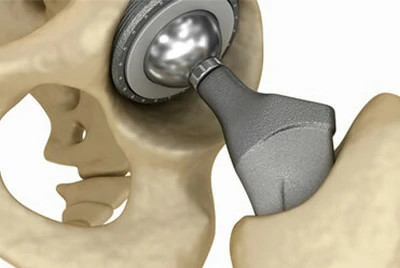
Alloys and applications
- Ti-6Al-4V: Weight-bearing components for hip and knee implants.
- Ti-6Al-7Nb: Commonly used in bone plates, screws, and other components.
- Ti-13Nb-13Zr: Spinal implants, bone plates.
- Ti-15Mo: Spinal fixation devices, bone screws.
- Commercially pure titanium (CP Ti): Fixation screws, wires.
- Nickel-titanium alloy: Suturing and soft tissue fixation devices.
Advantages
- High strength-to-weight ratio: Titanium implants are lighter, offering greater comfort for patients.
- Seamless integration with bone: Titanium has excellent biocompatibility and osseointegration properties.
- Low elastic modulus: Titanium's modulus of elasticity is closer to that of human bone (Titanium: 100-110 GPa; Bone: 30 GPa), reducing the stress shielding effect and lowering the risk of bone resorption.
- Corrosion resistance: Titanium's excellent corrosion resistance in bodily fluids ensures long-term material stability and extended lifespan.
Titanium surface treatments
- Surface roughening: Increases contact surface between titanium alloy and bone tissue, enhancing osteoblast adhesion and proliferation.
- Nanocoating: Uses nanotechnology to improve the biological activity of titanium alloys' surfaces, enhancing bone tissue regeneration.
- Hydroxyapatite coating (HA coating): Helps accelerate osseointegration.
- Bioactive glass-ceramic coating: Improves titanium alloy biocompatibility, promotes bone growth, and reduces corrosion.
- Pearl-like coating: Offers good biocompatibility and bone-inducing properties.
Trauma instruments
Titanium and its alloys are used in trauma instruments like bone plates, screws, and intramedullary nails, designed to withstand mechanical stress in the body.
Contact us now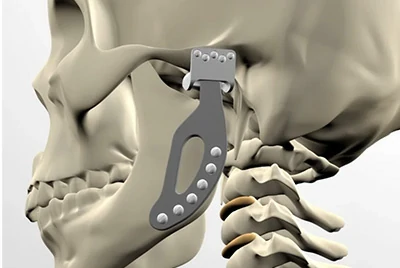
Common titanium alloys
- Ti-6Al-4V: Screws and bone plates in trauma instruments, widely used in trauma fixation devices.
- Ti-6Al-7Nb: With a lower elastic modulus, suitable for trauma devices requiring biocompatibility.
- Commercially pure titanium: Used for trauma instruments with lower load requirements, such as fixation screws.
Advantages of titanium in trauma instruments
- Excellent biocompatibility: Titanium has a low immune response and infection risk, making it suitable for long-term implantation.
- Lower allergy risk: Titanium has a lower chance of causing allergic reactions.
- Good stability: Titanium provides long-lasting stable support.
Cardiovascular devices
Titanium and its alloys are widely used in cardiovascular medical devices, particularly in stents, heart valves, pacemaker housings, and other equipment.
Contact us now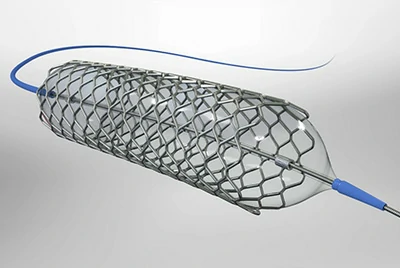
- Ti-6Al-4V: Provides high strength and corrosion resistance, suitable for cardiovascular devices like stents and mechanical heart valves that bear long-term loads.
- Commercially pure titanium (Grade 2): Offers excellent corrosion resistance and biocompatibility, ideal for devices like pacemaker housings and artificial heart pumps.
- Nickel-titanium alloy: Features shape memory effect and superelasticity, especially suitable for vascular stents and vena cava filters in minimally invasive treatments, automatically restoring shape inside the body for precise treatment.
Oral applications
Titanium and its alloys are regarded as ideal materials for modern dental restorations due to their excellent biocompatibility, mechanical properties, and corrosion resistance.
Contact us now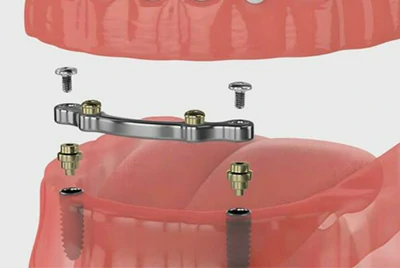
Alloys and applications
- Commercially pure titanium (ASTM Grades 1-4): Grade 2 (ASTM GR2) is the most popular material for dental implants, with a yield strength of 275 MPa.
- Ti-6Al-4V and Ti-6Al-4V ELI: Suitable for applications requiring high mechanical strength and low interstitial elements, such as dental implant abutments.
- Ti-29Nb-13Ta-4.6Zr: Widely used in dental restorations and implants due to its low elastic modulus, excellent biocompatibility, and corrosion resistance, particularly in dentures, denture bases, and artificial tooth roots.
- Nickel-titanium alloy: Especially suitable for orthodontic applications, such as dental archwires and spring devices, offering gentle force transmission and enhanced patient comfort.
Advantages
- Titanium has excellent affinity with human tissues, making it ideal for long-term implantation in restorative devices.
- Titanium exhibits excellent corrosion resistance in the acidic or alkaline oral environment.
- The density of titanium is close to that of natural teeth, making dentures lightweight and comfortable.
- High strength and fatigue resistance ensure a longer service life.
- Titanium has a much lower thermal conductivity than other metals, effectively protecting the dental pulp and preventing discomfort from hot and cold stimuli.
- Titanium materials are precision-cast, with smooth, bubble-free surfaces, meeting the high-precision requirements of dental restorations.
Our products comply with international standards such as ASTM F67, F136, ISO 5832, and offer customized services to meet individual customer needs.
Surgical instruments
Titanium and its alloys are widely used in surgical instruments, covering a variety of tools such as scalpels, forceps, tweezers, thoracic expanders, suturing needles, and sutures.
Contact us now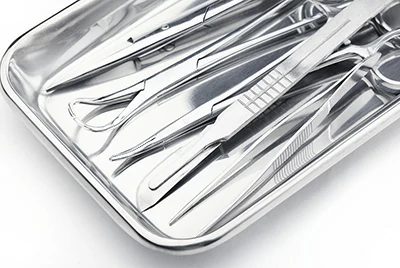
- The instruments are lightweight, reducing damage to blood vessels, muscles, and organs during surgery, and decreasing surgeon fatigue. Titanium instruments are especially suited for delicate microsurgical procedures.
- Excellent corrosion resistance and non-toxicity ensure the equipment doesn't rust, reducing the risk of infection and promoting faster wound healing.
- Titanium's moderate elasticity makes it ideal for making forceps, tweezers, microsurgical knives, and other instruments.
- Under operating lights, titanium's low reflectivity makes it more suitable than stainless steel.
Medical equipment
Titanium provides structural support and radiation shielding for imaging devices such as CT and MRI machines, protecting sensitive components and ensuring patient safety.
Contact us now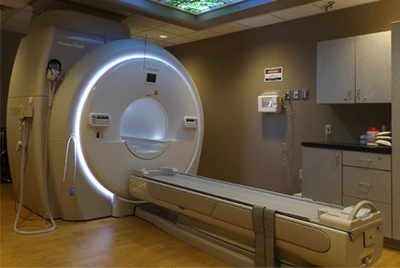
Pharmaceutical equipment
Due to the frequent exposure of equipment to corrosive substances such as acids, alkalis, and salts during the pharmaceutical process, the use of titanium effectively solves the corrosion issues of the equipment.
Contact us now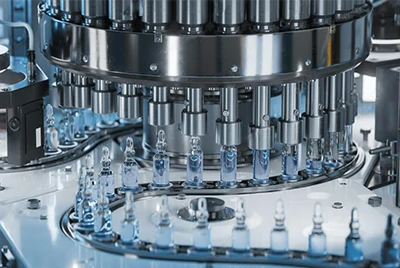
- Vitamin B1 Production Equipment: Due to the strong corrosive nature of hydrochloride thiamine, stainless steel equipment was prone to corrosion. Titanium screw feeders, cyclone separators, and hoppers significantly improved production yield.
- Vitamin C Production: Titanium-made tube heat exchangers and titanium butterfly-type centrifugal separators have been used for years without corrosion issues.
- Antibiotic Production: In the chemical synthesis of chloramphenicol, titanium equipment replaced steel equipment to avoid corrosion problems.
- Anesthetic Drug Production: The corrosion issues in the production of procaine hydrochloride were resolved with titanium-steel composite inner cylinders and titanium bubbling tubes.
- Pesticide and Other Pharmaceutical Product Production: Titanium is used in equipment for the production of products like deworming agents and nitro-chlorophenol, eliminating corrosion and product contamination issues caused by traditional stainless steel equipment.
Popular medical-grade titanium products
We offer a wide range of medical-grade titanium and titanium alloy products, including titanium rods, wires, plates, tubes, blocks, etc. Both standard sizes and custom sizes are available according to customer requirements.Quick Quote
Medical-grade titanium plate
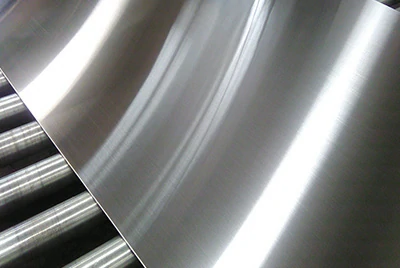
- Alloy: Ti-6Al-4V, Ti-6Al-4V ELI
- Standard: ASTM F67, ASTM F136
Medical-grade titanium rod
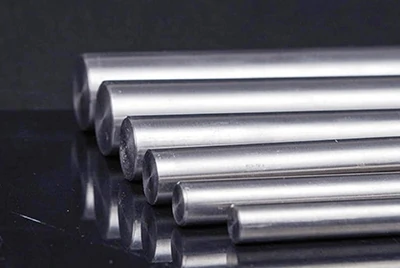
- Alloy: Grade 1, Grade 2, Grade 5 (Ti-6Al-4V), Grade 23 (Ti-6Al-4V ELI), GR9 (Ti-3Al-2.5V)
- Standard: ASTM F67, ASTM F136, ASTM B13810, GB/T 13810-2017, GB17168-2013
Medical-grade titanium tube
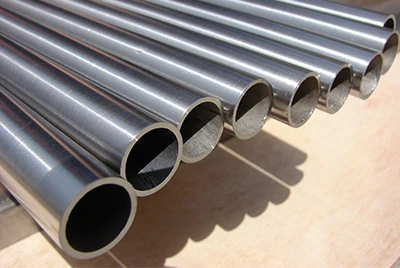
Standard: ASTM 337, ASTM 338, ASTM 3624, ASTM 3625
Medical-grade titanium disc
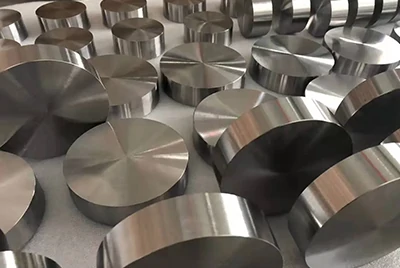
- Alloy:Grade 1,Grade 2,Grade 5(Ti-6Al-4V),Grade 23(Ti-6Al-4V ELI),GR9(Ti-3Al-2.5V)
- Specification: ASTM F67,ASTM F136,GB/T13810-2017,GB/13810-2017,GB17168-2013,GB17168-2013
Medical-grade titanium block
Size: 20mm, 25mm, 30mm, 35mm, 40mm
Alloy: Grade 1, Grade 2
Standard: ASTM F67, GB/T 13810-2017, GB17168-2013
Contact us now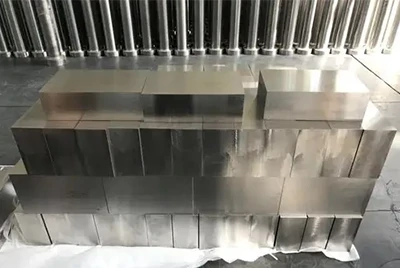
Medical-grade titanium wire
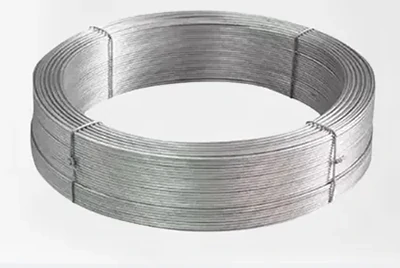
- Standard: ASTM F1341
- Standard Numbers: UNS R50250, UNS R50400, UNS R50550, UNS R50700
Medical-grade titanium foil
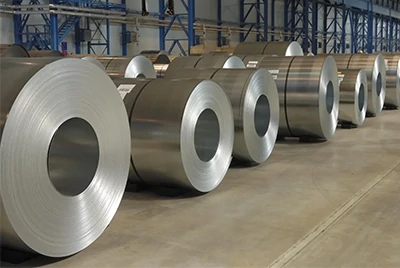
Multi-process medical-grade titanium customization solutions
Forged titanium parts
Forged titanium and its alloys are widely used, especially in the medical field, due to their excellent properties.
- Alloys: Ti-6Al-4V ELI, Ti-6Al-4V, Ti-6Al-7Nb, Ti-13Nb-13Zr, Ti-12Mo-6Zr-2Fe, Ti-5Al-2.5Fe
- Standards: ASTM F136, ASTM F1472, ASTM F1295, ASTM F1713, ASTM F1813, ASTM F620
- Forging accuracy up to ±0.1mm
- Fully tracked and precisely monitored in accordance with ISO 13485 standards
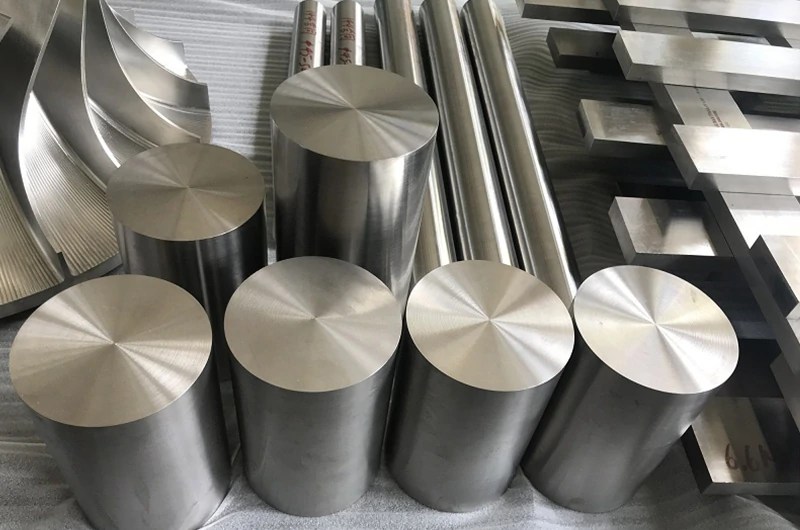
Precision cast parts
Precision casting is suitable for manufacturing complex-shaped parts, particularly in orthopedic implants and dental fields.
- Alloys: Ti-6Al-4V
- Standards: ASTM F1108, ISO 5832-4
- Custom production: Can produce specific sizes and shapes based on requirements
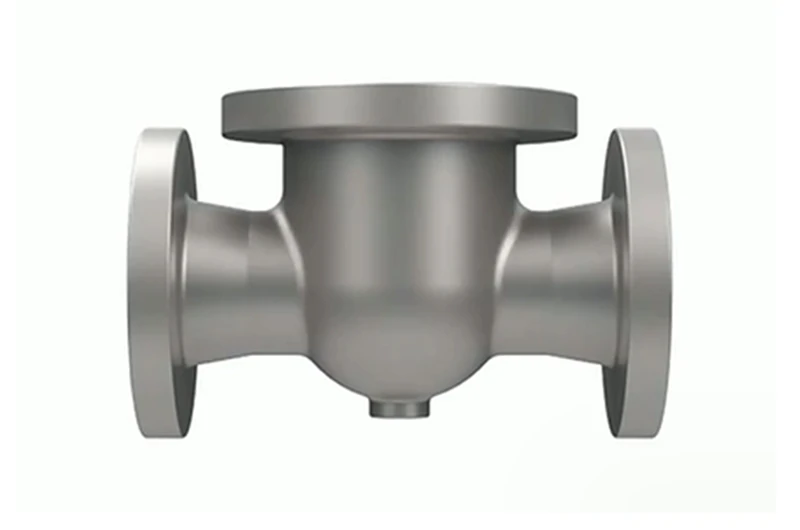
Powder metallurgy
Powder metallurgy is a process where metal powders are prepared and pressed into shape, then sintered (heated to bond the particles) to form dense components.
- Alloys: Ti-6Al-4V SG
- Standards: F1580
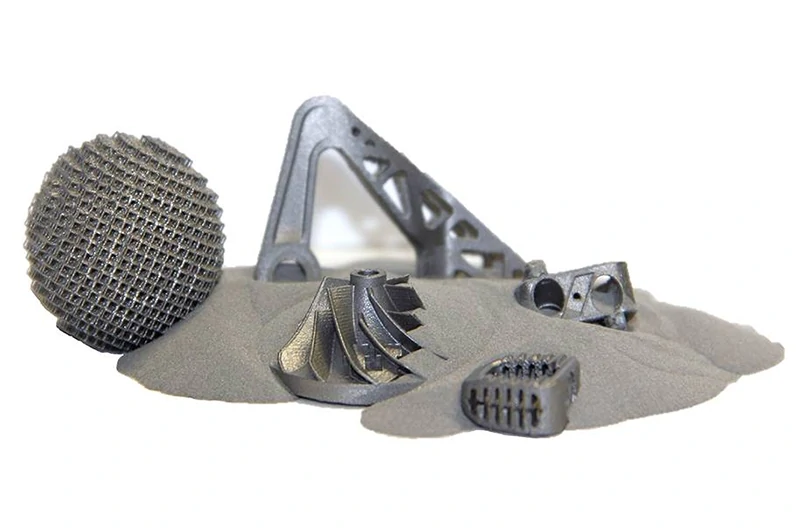
3D printed parts
3D printing is a technology that builds up material layer by layer to create three-dimensional objects, also known as additive manufacturing. It is commonly used to produce titanium alloy implants, orthopedic, and dental instruments.
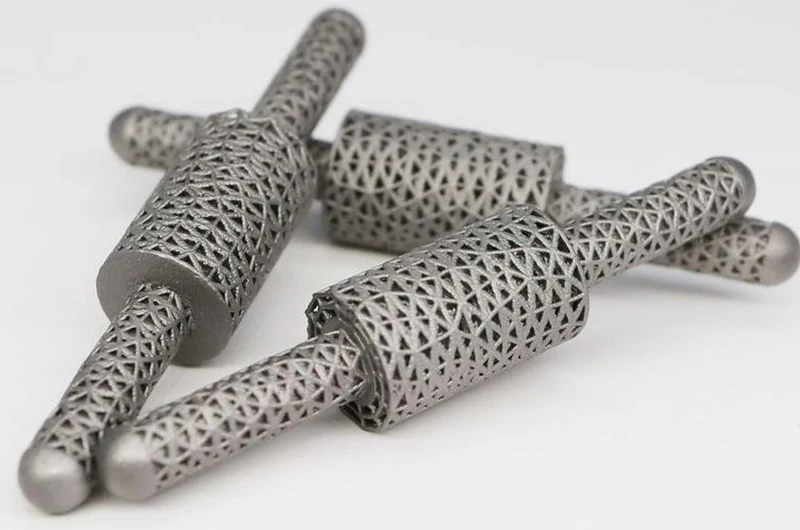
Physical properties of medical titanium materials
Choosing titanium alloy materials with an elastic modulus closer to that of bone can optimize the mechanical properties of medical implants, reduce long-term complications, and improve patient satisfaction.
| Material | Elastic Modulus (GPa) | Tensile Strength (MPa) | Standard |
|---|---|---|---|
| Commercial Pure Titanium | 100 | 240-550 | ASTM 1341 |
| Ti-6Al-4V Forgings | 110 | 860-965 | ASTM F136 |
| Ti-6Al-4V Standard Grade | 112 | 895-930 | ASTM F1472 |
| Ti-6A1-7Nb | 110 | 900-1050 | ASTM F1295 |
| Ti-5A1-2.5Fe | 110 | 1020 | - |
| Ti-13Nb-13Zr | 79-84 | 973-1037 | - |
| Ti-12Mo-6Zr-2Fe | 74-85 | 1060-1100 | - |
| Ti-35Nb-7Zr-5Ta | 55 | 596 | - |
| Ti-29Nb-13Ta-4.6Zr | 65 | 911 | - |
| Ti-35Nb-7Zr-5Ta-0.40 | 66 | 1010 | ASTM F1713 |
| Ti-15Mo-5Zr-3A1 | 82 | - | ASTM F1813 |
Surface treatment of medical-grade titanium materials
The surface treatment technology of medical titanium materials directly affects their biocompatibility, durability, and clinical outcomes.
Passivation/oxidation/anodization
By controlling the thickness and chemical composition of the surface oxide layer, the chemical stability of titanium materials is enhanced.
- Enhanced corrosion resistance: Protects the titanium substrate from corrosion by bodily fluids.
- Promotes bone integration: The oxide layer accelerates protein adsorption and osteoblast growth, improving bone bonding.
- Functionalization: Anodization can create a nanotube structure for drug delivery and antimicrobial coatings.
Bioactive coatings
Oxide titanium, calcium compounds (such as hydroxyapatite), or bio-glass are deposited on the titanium surface.
- Promotes bone integration: Similar to the mineral composition of bone tissue, accelerating bone regeneration.
- Improves biological interaction: Enhances the bonding performance of implants with surrounding tissues.
- Wide applicability: Especially suitable for orthopedic implants and dental restoration materials.
Hard coatings
Hard materials, such as TiN or TiC, are coated using CVD or PVD technology to increase surface hardness.
- Improves wear resistance: Suitable for high-friction and high-load environments, such as joint implants.
- Reduces cell adhesion: Effectively prevents restenosis in cardiovascular devices.
- Extends lifespan: Hard coatings reduce friction wear, improving the durability of devices.
Diffusion treatment
Techniques such as nitriding or carburizing are used to introduce nitrogen or carbon to the titanium surface.
- Increases surface hardness: Forms a hardened surface layer, reducing wear.
- Enhances fatigue resistance: Suitable for high-stress medical implants, such as hip or knee joint components.
- Reduces friction: Lowers the wear rate of implants in the body.
Physical and chemical adsorption
Growth factors or biomolecules are fixed onto the titanium surface through physical or chemical means. Surface bioactivity can be optimized according to customer requirements.
Medical-grade titanium machining solutions
- Electrical discharge machining (EDM): Material is removed through electrical discharges without physical contact. Particularly suitable for complex geometries, thin-walled components, and hardened surfaces. No thermal damage or deformation, making it ideal for high-melting-point titanium alloys.
- Abrasive water jet machining (AWJM): High-speed water flow mixed with abrasive particles cuts material without a heat-affected zone.
- Laser machining (LM): A high-energy laser beam precisely melts or vaporizes material, suitable for fine details and intricate cuts.
- Ultrasonic machining (UM): Ultrasonic vibrations combined with abrasive slurry, ideal for forming hard materials. Applied to complex medical implants that traditional methods struggle to process.
Medical-grade titanium heat treatment
The heat treatment methods for biomedical titanium alloys depend on the production technology, chemical composition, and specific application requirements of the customer.
For example, forged components (such as femoral stems) typically require stress relief before further machining.
Nickel-titanium alloys are usually annealed at high temperatures to dissolve precipitates and impurities, enhancing their shape memory effect and superelasticity.
- Vacuum heat treatment: Prevents the reaction between titanium and oxygen or nitrogen, avoiding the formation of harmful α shells.
- Stress relief: Reduces residual stresses created during processing, improving fatigue performance.
- Annealing: Enhances fracture toughness, ductility, thermal stability, and creep resistance.
- Solution treatment and aging: Strengthens the alloy by phase balance, improving strength, hardness, and fatigue resistance.
Performance comparison of titanium, stainless steel, and cobalt-chromium alloys in the medical field
| Property | Titanium | Stainless Steel | Cobalt-Chromium Alloy |
|---|---|---|---|
| Biocompatibility (%) | 99.8% (Excellent) | 90.5% | 85% |
| Corrosion Resistance | Very high (self-healing oxide layer) | Moderate (prone to corrosion) | High (suitable for specific scenarios) |
| Ion Leaching (ppm) | < 0.1 | Fe 0.5, Cr 0.2 | Co 0.8, Cr 0.3 |
| Density | Low (about 4.5 g/cm³) | High (about 7.8 g/cm³) | High (about 8.4 g/cm³) |
| Elastic Modulus | Close to bone (50-110 GPa) | High (200 GPa) | High (210 GPa) |
Research shows that titanium can form a self-healing oxide layer on its surface, with a corrosion rate as low as 0.0005 mm/year in simulated human body environments, far superior to stainless steel and cobalt-chromium alloys.
At the same time, its ion leaching is below the safety threshold, preventing rejection reactions, while promoting cell proliferation and bone integration, with a biocompatibility of up to 99.8%.
These characteristics make titanium an ideal choice for manufacturing implants and medical devices, ensuring long-term stability and safety.
Cutting-edge equipment, demonstrating production strength
- We are equipped with centerless grinders with diameters of 130 and 30, as well as ultrasonic flaw detection stations and marble inspection platforms to ensure the processing accuracy and surface quality of titanium rods, wires, and other products.
- Vacuum annealing furnaces and 4.5-meter atmospheric annealing furnaces provide uniform heat treatment to improve material stability and durability.
- With a 3300mm wide plate rolling mill and a 1200mm four-roll reversible cold and hot rolling mill imported from Japan, we ensure high quality and dimensional stability of titanium plates.
- Our self-designed continuous rolling mills and multi-roll straightening machines significantly enhance the production efficiency and quality of rods.
- Advanced casting equipment (vacuum shell furnaces, self-consuming electric arc furnaces, etc.) allows for high-precision forming of complex parts.
Outstanding service advantages
- Highly customized service: We offer comprehensive customized services, working closely with clients from design to production to ensure products precisely meet customer needs.
- Comprehensive application coverage: Whether it’s implants, surgical instruments, or diagnostic equipment, we can provide suitable solutions.
- Authoritative certification: We are certified by quality management systems such as ISO 13485 and ISO 9001:2015, and hold national medical device production licenses along with international CE and FDA certifications.
- Strict QA process: From raw material procurement to finished product shipment, every step undergoes rigorous testing to ensure biocompatibility and product reliability.
- Advanced equipment testing: Using the most advanced testing tools and technologies, we provide high-precision quality data and complete technical documentation support for each product.
Professional packaging and efficient transportation guarantee
- Each medical titanium product is labeled with clear tags indicating the alloy grade, specifications, batch number, and production date, ensuring quick identification and quality traceability.
- Moisture protection: Plastic film or vacuum-sealed packaging is used to prevent oxidation and moisture.
- Collision cushioning: Foam pads, EVA protective layers, and other materials are added to avoid bumps and scratches during transport.
- Thick wooden crates, metal frames, or custom pallets are used to provide sturdy external protection.
- Multiple transportation options are available, including air, land, and sea transport, optimized for delivery time and cost based on customer needs.
- Real-time tracking services are provided, allowing customers to stay updated on the shipping status.
All medical titanium alloy grade table
| Alloy Name | Phase | Area of Application |
|---|---|---|
| CP-Ti (Grade 1) | α | Dental (uncommon) |
| CP-Ti (Grade 2) | α | Dental, Joint replacement |
| CP-Ti (Grade 3) | α | Dental |
| CP-Ti (Grade 4) | α | Joint replacement |
| Ti-8Al-1Mo-1V | α | - |
| Ti-6Al-2Nb-1Ta-0.8Mo | α | Joint replacement |
| Ti-6Al-2Zr-1Mo-1V | α | Joint replacement |
| Ti-6Al-4V (Grade 5) | α-β | Joint replacement, trauma, dental, spinal, etc. |
| Ti-6Al-4V ELI (Grade 23) | α-β | Joint replacement, trauma, cardiovascular, dental, spinal, etc. |
| Ti-6Al-7Nb | α-β | Joint replacement and dental |
| Ti-5Al-2.5Fe (Grade 9) | α-β | Dental |
| Ti-3Al-2.5V | α-β | Joint replacement |
| Ti-6Al-6V-2Sn | α-β | Joint replacement |
| Ti-10Fe-10Ta-4Zr | α-β | Joint replacement |
| Ti-5Al-2Sn-2Zr-4Mo-4Cr | α-β | Joint replacement |
| Ti-4Al-4Mo-2Sn-0.5Si | α-β | Joint replacement |
| Ti-3Zr-2Sn-3Mo-25Nb | β | Joint replacement |
| Ti-13Nb-13Zr | β | Joint replacement and dental |
| Ti-12Mo-6Zr-2Fe | β | Joint replacement |
| Ti-15Mo | β | Joint replacement and dental |
| Ti-15Mo-5Zr-3Al | β | Joint replacement |
| Ti-15Mo-2.8Nb-0.2Si-0.260 | β | Joint replacement |
| Ti-16Nb-10Hf | β | Joint replacement |
| Ti-35.5Nb-7.3Zr-5.7Ta | β | Joint replacement |
| Ti-29Nb-13Ta-4.6Zr | β | Joint replacement |
| Ti-24Nb-4Zr-8Sn | β | Joint replacement |
| Ti-9Mn | β | Joint replacement |
| Ti-6Mn-4Mo | β | Joint replacement |
| Ti-10Fe-10Ta-4Zr | β | Joint replacement |
| Ti-12Cr | β | Joint replacement |
| Ti-11Cr-0.xO | β | Joint replacement |
| Ti-36Nb-2Ta-3Zr-0.3O | β | Joint replacement |
| Ti-24Nb-0.5O | β | Joint replacement |
| Ti-24Nb-0.5N | β | Joint replacement |
| Ti-23Nb-0.7Ta-2Zr | β | Joint replacement |
| Ti-23Nb-0.7Ta-2Zr-1.2O | β | Joint replacement |
| Ti-12Mo-6Zr-2Fe | β | Joint replacement |
| NiTi (Nitinol) | Cardiovascular, dental, joint replacement | |
| Ti-30Zr-xMo | Joint replacement |




